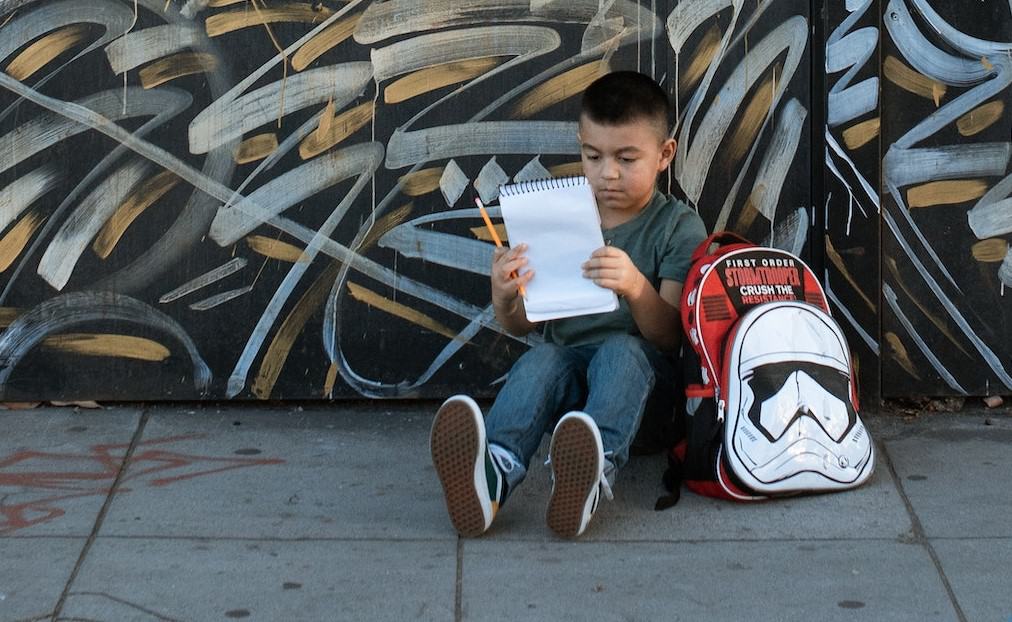The first day of preschool is a major milestone for both parents and children. It’s a time of excitement, anticipation, and new beginnings. However, it can also be a stressful and overwhelming experience, especially for parents who are not sure what to expect.
Getting ready for the first day of preschool may seem overwhelming, but it’s important to keep in mind that each school has its own rules. Still, most preschools will need some basic things, and by planning ahead and staying organized, you can help make the transition a happy and exciting time for both you and your child.
In order to ensure that your child’s first day of preschool goes as smoothly as possible, it’s essential to prepare in advance. This way, you can help ensure that your child feels confident and secure as they begin their educational journey.
First Day of Preschool Checklist
Before we dive into the checklist, it is important to note that you should confirm with your child’s preschool if they have any specific requirements. Now, let’s take a look at the essential items you’ll need to bring for your little one’s big day.
1. Backpack

Your child’s backpack is a very important item to bring on the first day of preschool. It’s a place where they can keep all their important things together. It can even be an outlet for your child to show off his or her unique personality as well.
2. Water bottle
Another thing that should be included in your first day of preschool checklist is a water bottle. Staying hydrated is the key to keeping your child focused and energized all throughout the day. Plus, having their own water bottle can make your child feel more independent and grown up, especially on their first day of preschool.
3. Snacks
Snacks are a must-have for any preschooler, as they provide the much-needed energy boost that your child needs to learn every lesson at school. Furthermore, snacks are also a great opportunity for your child to try new foods and expand their palate.
4. Lunch box
Packing your child’s lunch on the first day of preschool is a great way to make sure that they are getting the nutrition they need. Including some vegetables in their lunchboxes will also keep let them grow healthier. Lastly, it also gives you the opportunity to include special notes or surprises to brighten their day.
5. Change of clothes
Accidents can happen, so it is very important that your child has a change of clothes ready at all times. You never know what can happen when you are away from them. Having extra clothes on your first day of preschool checklist can also make your child feel more confident and comfortable if something unexpected occurs. Furthermore, knowing that everything has been planned ahead of time should alleviate some of your concerns as well.
6. Sunscreen
Protecting your child’s delicate skin from the sun’s harmful rays is important. So teaching them how to apply a good amount of sunscreen to their bodies will be extremely beneficial in the long run. Even if they don’t like how it feels at first, don’t worry. Applying sunscreen can even be a fun and interactive activity for you and your child, too!
7. Hat

Another thing that should be included in your first day of preschool checklist is a hat. Hats are not only a great way to protect your child’s head from the sun, but it can also add a fun and stylish accessory to their outfit.
8. Jacket or sweater
The weather can be unpredictable, so it’s always a good idea to pack a jacket or sweater for your little one. It’ll help keep them warm and cozy on cooler days.
9. Indoor shoes
Some preschools require indoor shoes to help keep the classroom clean and safe. Moreover, having a special pair of shoes just for school can make your child feel important and prepared.
10. Outdoor shoes
Outdoor play is a big part of the preschool experience, so having a sturdy and comfortable pair of shoes can help your child explore and have fun.
11. Comfort item
On the first day of preschool, it can be tough to say goodbye to mom and dad. That’s where a familiar and comforting item from home comes in. It can help ease any separation anxiety and provide emotional support throughout the day.
12. Picture of family
Pictures are also a great addition to your first day of preschool checklist. Allowing your child to take a picture of your family on their first day of preschool is a great way of helping your child feel connected to home at all times. It can also remind them that they’re loved and supported, even when they are separated from you.
13. Medications (if applicable)
As a parent, your child’s safety should always be your top priority. So if your child requires medication during the day, be sure to pack it and provide clear instructions to the preschool staff.
14. Health forms and emergency contact information
According to the American Academy of Pediatrics (AAP), it’s common for young children to experience an increased frequency of illnesses during their first year in group care settings, including preschools.
This can be due to the exposure to new viruses and bacteria that are common in group settings, as well as the fact that young children are still building up their immune systems.
So, make sure that your child’s health forms and emergency contact information are always up-to-date and easy to find. This will make sure that the preschool staff has all the information they need in case of an emergency.
15. Hand sanitizer

In addition to promoting good hand hygiene, packing a fun and colorful bottle of hand sanitizer can make staying clean and healthy a playful and interactive activity for your child. Teaching them how to use hand sanitizers will also keep them safe from germs all throughout the day.
16. Tissues
Tissues are always handy to have, especially during cold and flu season. From keeping their desks at school clean to keeping their hands clean and dry all the time, your child will surely benefit from a box of tissues inside their backpack. You can make them more fun by finding tissues with your child’s favorite character or design.
17. Nap-time items
If your child is taking a nap at preschool, bring along any necessary items to help them sleep comfortably, such as a cozy blanket or cuddly stuffed animal.
18. Extra diapers or underwear
Bringing along extra diapers or underwear is always a smart move, especially if your child is not yet fully potty trained.
19. Special needs items (if applicable):
If your child has special needs, it’s important to make sure you bring any necessary items, such as medication or assistive devices, to ensure they feel comfortable and supported.
Be sure to communicate any concerns or needs with the school staff as well. That way, you can be sure they can provide the best possible care and education for your child.
20. Any other items specified by the preschool
Some preschools may have specific requirements, such as a change of shoes for outdoor play or a special project item. It can be exciting to discover and prepare for new experiences, so make sure to confirm any additional items with the school beforehand.
Final Thoughts
The first day of preschool is a big step for both you and your child. Both of you will most likely feel emotional as this milestone will remind you of how time has passed. But by being prepared and organized, you will not only ensure a successful transition but also ease your mind that nothing will go wrong on this eventful day.
If you use this checklist and double-check everything with your child’s preschool beforehand, you can be sure that you have everything you need to make your child’s first day of preschool a good one that they will remember.
Always keep in mind that every child is unique, and what works for one family may not work for another. That is why it is extremely important to trust your instincts and remember that you know your child better than anyone. After all, you are their biggest advocate and know what’s best for them.